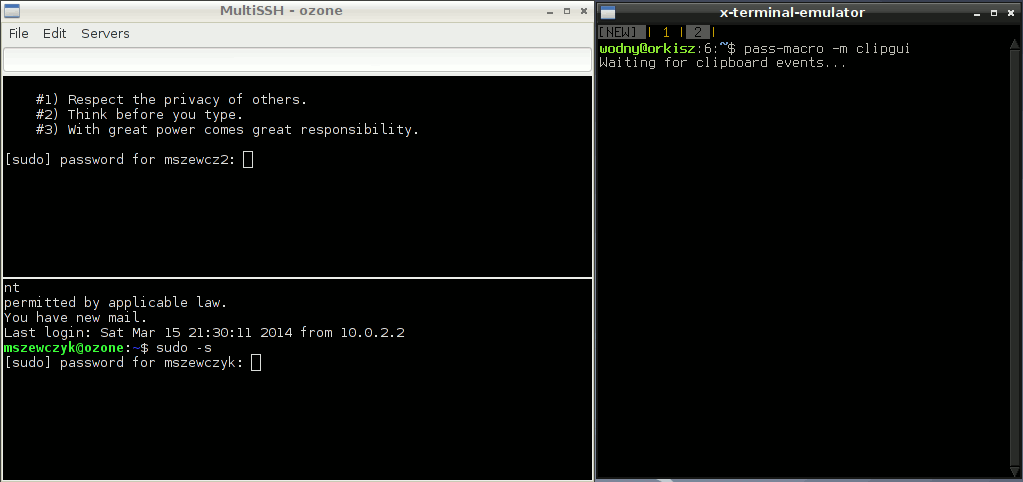It allows the user to have a simple encrypted password database in a text file. User can paste the selected password directly at the password prompt - that eliminates the problem of eavesdropping when manually selecting password in one window and pasting it to another.
Searches through an OpenPGP-encrypted file consisting of lines of form:
description [description ...] password
Waits for clipboard contents requests until clipboard owner change, specified timeout or maximum number of requests is reached.
All specified patterns must be found within description tokens. If more than one line matches, selection menu appears.
Search patterns may be passed as arguments or using the PRIMARY
clipboard. In those modes the manager first waits until you select some
text and then treats it as pattern. This is useful for example when you
sudo on multiple machines simultaneously - you can select the
hostname from a shell prompt.
Use --help for details.
- uses GPGME (interface to GnuPG) for decryption,
- can read a search pattern from the PRIMARY clipboard,
- uses PyGTK for clipboard manipulation,
- uses PyGTK to display a password selection GUI,
- clipboard selection (PRIMARY or CLIPBOARD).
# Create a password database $ cat > passwords password 1 to batmobile qwerty password 2 to batmobile 123456 password to the cave admin1 # Encrypt it $ gpg -e passwords # Find and paste passwords $ ./password-manager.py passwords.gpg batmobile 1 $ ./password-manager.py -m clipgui -t 10 -n 1 passwords.gpg # Select a username@hostname string in your terminal. # The password manager will cut just the hostname # using a regexp and then search for the right password $ ./password-manager.py -m clipgui -r "@([^:]+):?"
